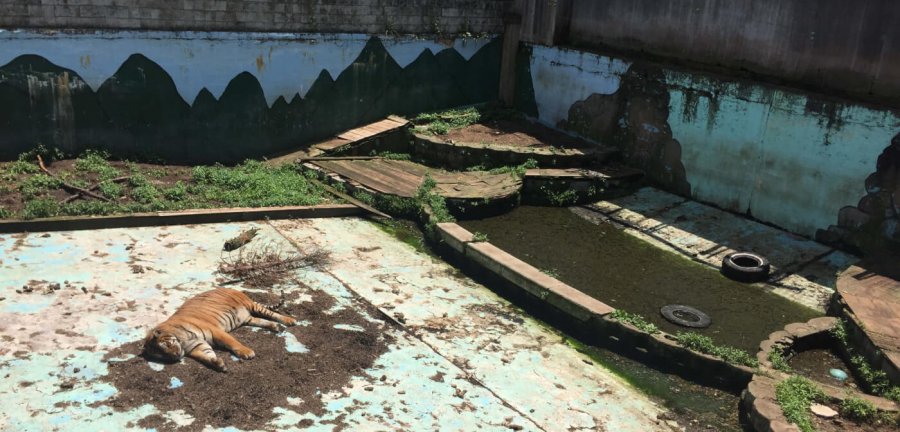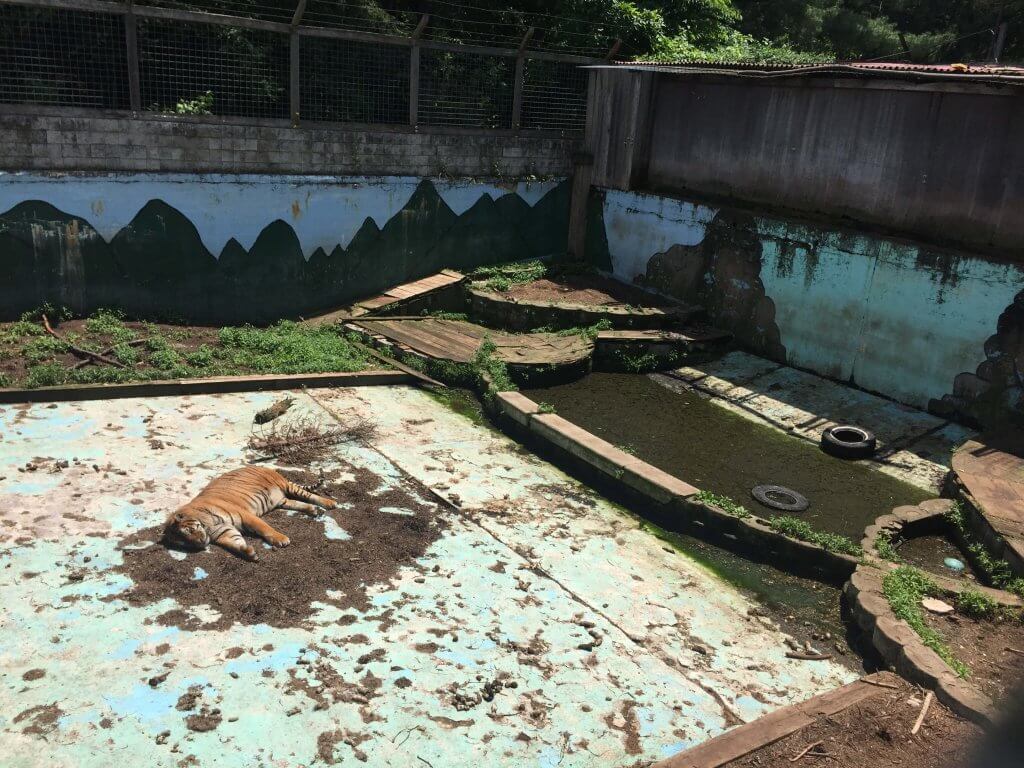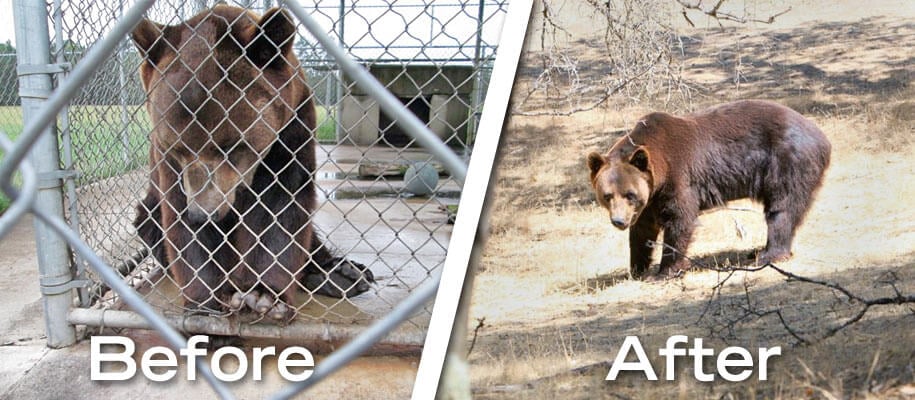Day after day, calls and e-mails pour into PETA’s offices asking, “Why is this terrible roadside zoo (or circus) still in business?” When animals are being beaten, neglected, and denied veterinary care and clean food and water, the question is legitimate. Why, indeed, does the U.S. Department of Agriculture (USDA), the agency in charge of protecting animals, give animal abusers—even the most egregious ones—a free pass?
The USDA is supposed to enforce the federal Animal Welfare Act, America’s most important animal-protection law. It’s meant to ensure that animals receive “humane care and treatment.” Roadside zoos circuses and other traveling animal acts must be licensed and inspected for compliance with minimum welfare standards. But over and over again, even businesses that chronically and blatantly flout these fundamental requirements still have their license-renewal applications rubber-stamped by the USDA.
Take Wilson’s Wild Animal Park, a roadside zoo in Virginia, as just one example. Last May, the USDA inspected the seedy operation and documented that there were violations of nine welfare standards, including having just a single caretaker for nearly 200 animals. The owners also didn’t bother to get veterinary care for an injured goat who was in pain. Some were repeat violations, including—get this—failure to ensure that lions couldn’t escape. Wouldn’t you think that keeping apex predators properly contained would be priority number one? Guess again. This was the eighth time that the agency had cited Wilson’s for keeping lions in a dangerous enclosure.
You’d think that the only reasonable response would be for the USDA to slam the door shut on this disaster, right? Instead, it immediately turned around and renewed Wilson’s exhibitor’s license. For the animals suffering at this roadside zoo, it’s business as usual, and anyone living in the vicinity best be on high alert.
Why wouldn’t roadside zoos and similar facilities thumb their noses at the law? They practically have a better chance of winning the lottery than of actually having their licenses revoked. And fines are so minimal that—rather than deterring animal abuse and neglect—they’re shrugged off as a small cost of doing business.
But before you tear your hair out in frustration, there’s a glimmer of hope in sight. The USDA recently announced that in order to “promote compliance,” it’s considering doing what its own inspector general recommended more than 25 years ago—requiring that licensees show compliance prior to renewal.
Every caring person—and since these repeated inspections cost money, every taxpayer—should be demanding that this requirement be implemented.
In the meantime, in case you’re wondering, according to a recent inspection report, Wilson’s continues to hold lions in enclosures from which they could potentially escape and confine bears and tigers to tiny, desolate cages—and the hellhole still lacks sufficient staff to ensure the safety and well-being of all the animals. It’s high time that the USDA took action to protect these animals and thousands of others like them.
Delcianna J. Winders, Esq. is the PETA Foundation’s vice president and deputy general counsel for Captive Animal Law Enforcement.







